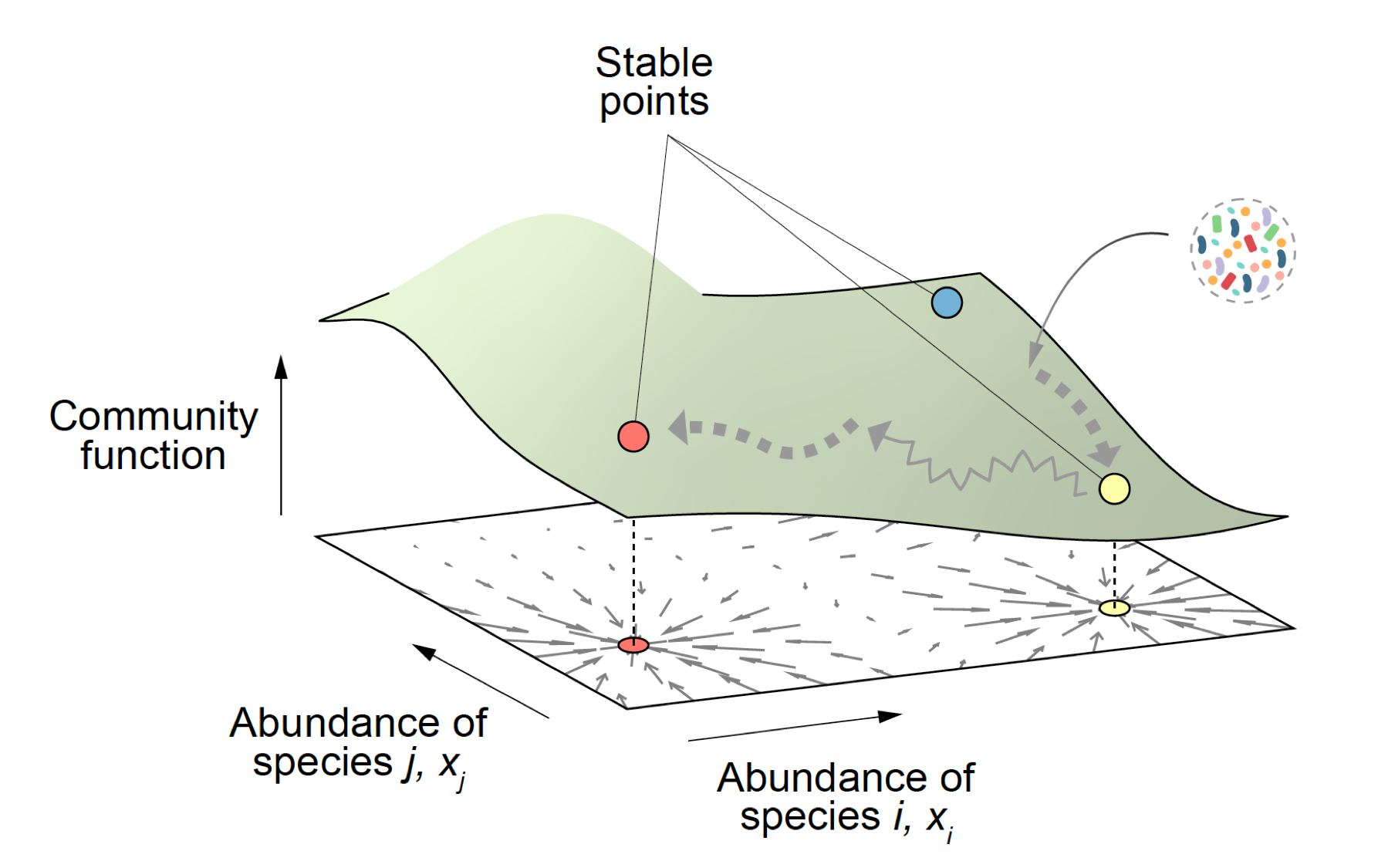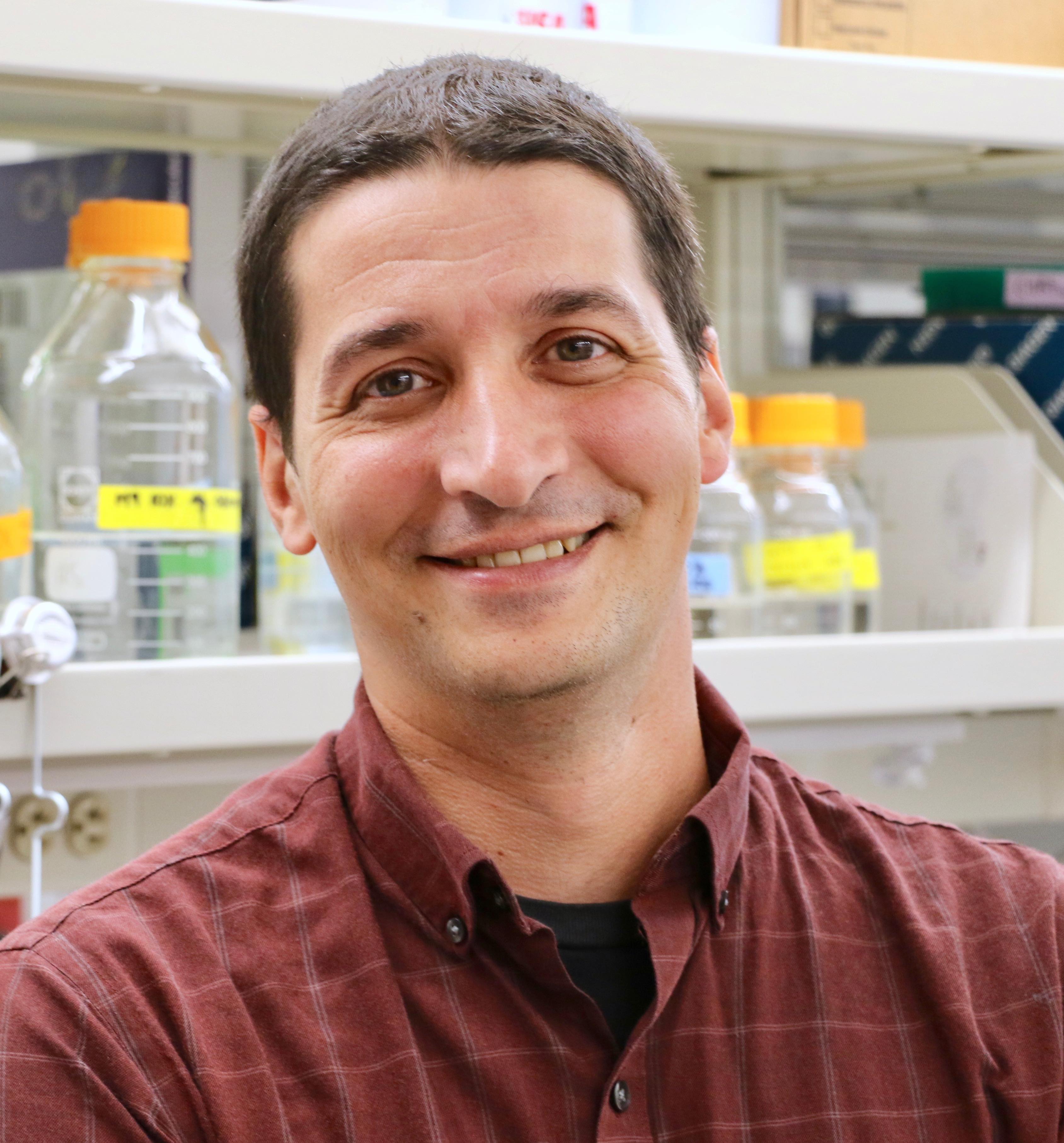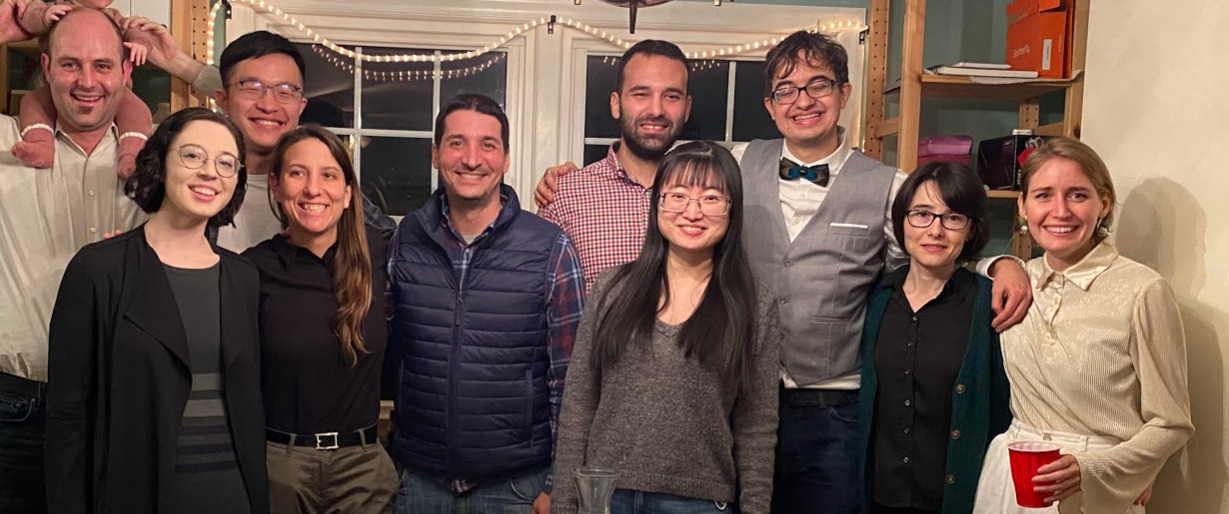Álvaro Sánchez (until September 2023)
Group Leader
Research summary
In the Microbial E&E lab we study the evolution and assembly of microbial consortia, and how their collective functions emerge from a complex web of interactions between their components
Publications
J Diaz-Colunga, N Lu, A Sanchez-Gorostiaga, C-Y Chang, H Cai, J Goldford, M Tikhonov & A Sanchez. Top-down and bottom-up cohesiveness in microbial community coalescence. Proceedings of the National Academy of Sciences USA (2022) 119(6):e2111261119
S Estrela, JC. C. Vila, N Lu, D Bajic, M Rebolleda-Gomez, C-Y Chang & A Sanchez. Metabolic rules of microbial community assembly. Cell Systems (2021)
Chang CY, Vila JCC, Bender M, Li R, Mankowski MC, Bassette M, Borden J, Golfier S, Sanchez S, Waymack R, Zhu X, Diaz-Colunga J, Estrela S, Rebolleda-Gomez M & Sanchez A. Engineering complex communities by directed evolution. Nature Ecology & Evolution (2021) 5, 1011–1023
S Estrela, A Sanchez-Gorostiaga, JC Vila & A Sanchez. Nutrient dominance governs the assembly of microbial communities in mixed nutrient environments. eLife (2021) 10:e65948
A Sanchez-Gorostiaga, D Bajic, ML Osborne, JF Poyatos, Sanchez, A. High-order interactions dominate the functional landscape of microbial consortia. PLoS Biology (2019) 17(12): e3000550
J Goldford, N Lu, D Bajic, S Estrela, A Sanchez-Gorostiaga, M Tikhonov, D Segre, P Mehta, A Sanchez. Emergent simplicity in microbial community assembly. Science (2018) 361:469-74
Our research centers on exploring how evolutionary biology may help us make sense, predict, and engineer microbial communities. To this end, we employ a combination of laboratory experiments, computer simulations, and mathematical modeling. Our laboratory is highly interdisciplinary and quantitative in nature, and our students and postdocs typically combine theory and experiment in their projects, acquiring a broad range of technical skills across the wet-lab / dry-lab divide. They also get exposed to a broad scientific intellectual background in ecology, evolution and systems biology. Our current lines of work are described below.
1) Engineering microbial consortia from the top-down. For millennia, selective breeding has allowed us to artificially select crops and domestic animals. In more recent times, the idea of directed evolution has been extended to engineering biological systems at or below the organismal level: from enzymes and RNA molecules to genetic circuits, metabolic networks, and microbial strains. Can these approaches be also extended to engineering biological systems above the organismal level of organization, such as microbial consortia? Our laboratory is exploring how one may do this successfully. We seek to develop empirical methods, grounded on ecological and evolutionary theory, that may be then adapted by applied biotechnologists in their particular settings. If you wish to know more about this line of work, see our recent publications by Diaz-Colunga (2022), Chang et al (2021), Sanchez et al (2021) and Chang et al (2020)
2) Predictively linking microbial community composition and community function. Microbial communities provide us with countless ecological services that are essential for the health of the biosphere and to preserve life as we know it. They also carry out a vast and growing number of important functions in biotechnology, from food production to the synthesis of biofuels and other economically critical molecules. These community functions are determined by community composition, i.e. by which genotypes are found in each community and their abundance. If we wish to engineer microbial consortia to optimize the functions they provide, it is key that we predictively and quantitatively link community composition and function. This is a hard problem, that cannot be solved empirically due to the astronomical number of potential consortia one may form even with a modest number of potential candidate genotypes. Microscopic models are exceedingly difficult to build, due to the complex web of interactions that are involved. Our laboratory is exploring whether ideas from the theory of fitness landscapes in genetics might help us solve this problem and produce predictive and quantitative models of community function from its composition. If you wish to learn more about this line of work, see our recent publications by Sanchez et al (2022), Diaz-Colunga et al (2022), Lino et al (2021), Sanchez (2020), Sanchez-Gorostiaga et al (2019)
3) Microbial evolution and community ecology. Although our main ongoing research lines are the two described above, we maintain a general interest in broad topics in microbial evolution and community ecology. For instance, what factors govern microbial biodiversity? How well can pairwise vs higher-order models predict coexistence and exclusion? Under which conditions will evolution contribute more genetic diversity than ecological processes, such as migration? How does evolution affect the stability of community functions? These are just a sample of questions of current interest. In the past, we have addressed a gamut of questions regarding the reproducibility and predictability of microbial community assembly at the functional and taxonomic scales and the effect of niche construction in microbial evolution, For more information about these completed projects, you may want to read Estrela et al (2022), Estrela et al (2021), Dukovski et al (2021), Vila et al (2020), Marsland et al (2019), Bajic et al (2018) or Goldford et al (2018).








